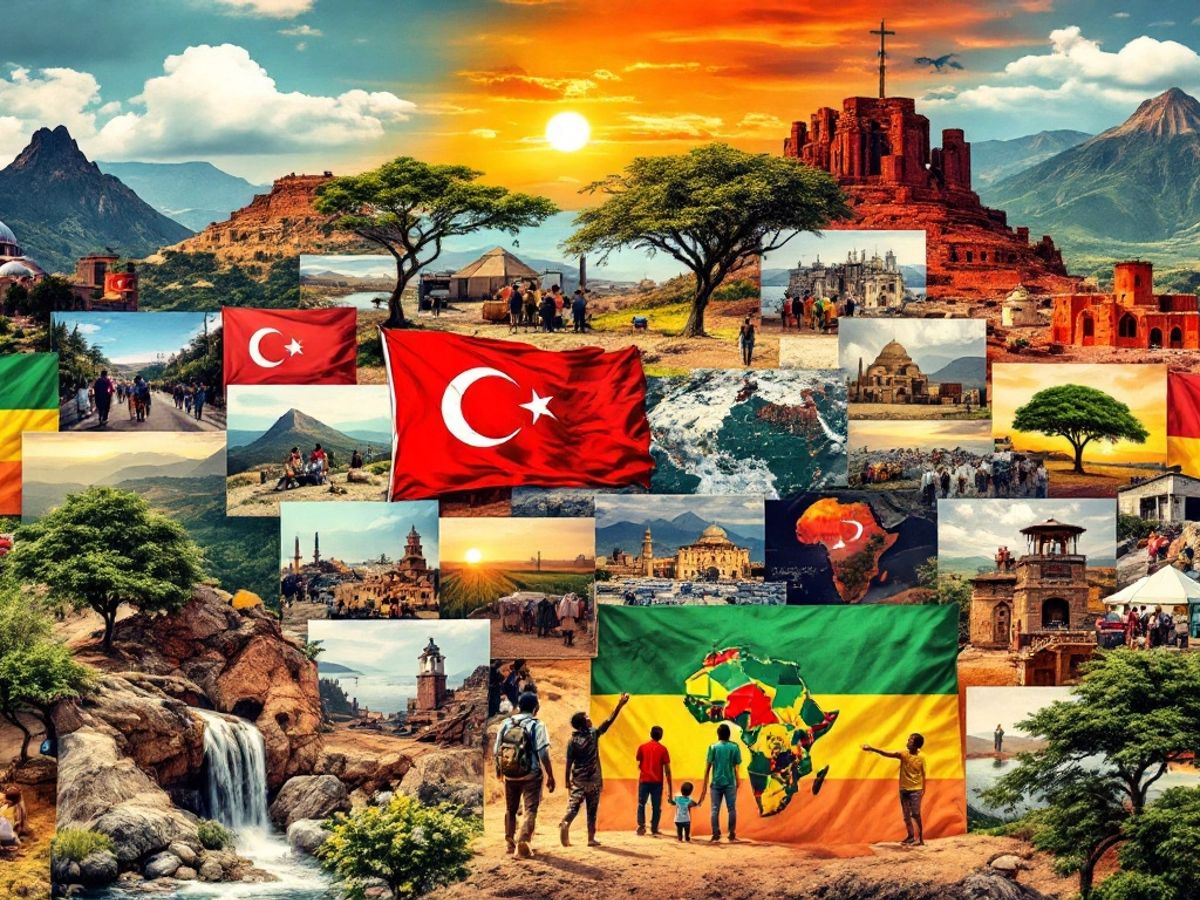Turkey is intensifying its diplomatic and economic engagements in Africa, marked by significant events such as the Türkiye-Africa Ministerial Review Conference in Djibouti and the arrival of the Oruc Reis seismic vessel in Somalia. These initiatives aim to bolster cooperation and explore energy resources, reflecting Turkey’s growing influence on the continent.
Key Takeaways
- Turkish Foreign Minister Hakan Fidan will attend the Türkiye-Africa Ministerial Review Conference in Djibouti on November 2-3.
- The conference will involve representatives from 14 African nations and aims to deepen cooperation.
- Turkey’s Oruc Reis vessel has arrived in Somalia to conduct oil and gas exploration, marking a new phase in bilateral relations.
Türkiye-Africa Ministerial Review Conference
The upcoming Türkiye-Africa Ministerial Review Conference in Djibouti is set to gather foreign ministers and representatives from 14 African nations. This meeting serves as a preparatory step for the fourth Türkiye-Africa Partnership Summit scheduled for 2026.
During the conference, a joint statement and the 2022-2024 Joint Implementation Report will be adopted, focusing on enhancing peace, stability, and economic development across the continent.
The participating countries include:
- Mauritania
- Angola
- Republic of Congo
- Ghana
- Comoros
- South Sudan
- Chad
- Djibouti
- Equatorial Guinea
- Libya
- Nigeria
- Zimbabwe
- Zambia
- Egypt
Strengthening Ties with Somalia
In a significant development, the Somali President Hassan Sheikh Mohamud welcomed Turkey’s Oruc Reis seismic vessel, which has docked in Mogadishu to begin oil and gas exploration. This mission is expected to last approximately six to seven months, during which the vessel will conduct three-dimensional seismic studies to gather data for potential drilling sites.
The arrival of the Oruc Reis marks a historic moment for Somalia, as it symbolizes Turkey’s commitment to investing in the country’s energy sector. Turkish Energy Minister Alparslan Bayraktar emphasized the importance of this partnership, stating that Turkey aims to contribute to the welfare of the Somali people through investments not only in oil and gas but also in mining and electricity.
Turkey’s Growing Influence in Africa
Turkey’s engagement in Africa has evolved significantly over the past 25 years, transitioning from an expansion policy to a comprehensive partnership framework. The country has increased its trade volume with African nations nearly eight-fold, surpassing $40 billion.
Key aspects of Turkey’s strategy include:
- Providing military training and defense equipment to enhance national capabilities in African countries.
- Fostering humanitarian, social, and economic development based on mutual benefit.
- Establishing itself as a security partner, particularly in counter-terrorism efforts.
Turkey’s unique approach, characterized by equal partnerships and a lack of colonial history, has made it a preferred ally for many African nations.
Conclusion
Turkey’s diplomatic and economic engagements in Africa, highlighted by the upcoming ministerial conference and energy exploration initiatives, reflect its commitment to fostering strong bilateral relations. As Turkey continues to expand its influence on the continent, it aims to create a framework of cooperation that benefits both parties, paving the way for a prosperous future in Africa.
Sources
- UN Network on Migration in Türkiye Hosts Capacity Development Workshop and Stakeholder Briefing on Global Migration Agreement | United Nations in Türkiye, United Nations in Türkiye.
- Turkish foreign minister to participate in Türkiye-Africa ministerial meeting in Djibouti, Anadolu Ajansı.
- Turkey to seek improved Africa cooperation in Djibouti talks, officials say, The Eastleigh Voice.
- Somali president welcomes Türkiye’s Oruc Reis seismic vessel for oil, gas exploration, Yeni Şafak.
- Türkiye to commence oil and natural gas exploration in Somali territories, Anadolu Ajansı.






